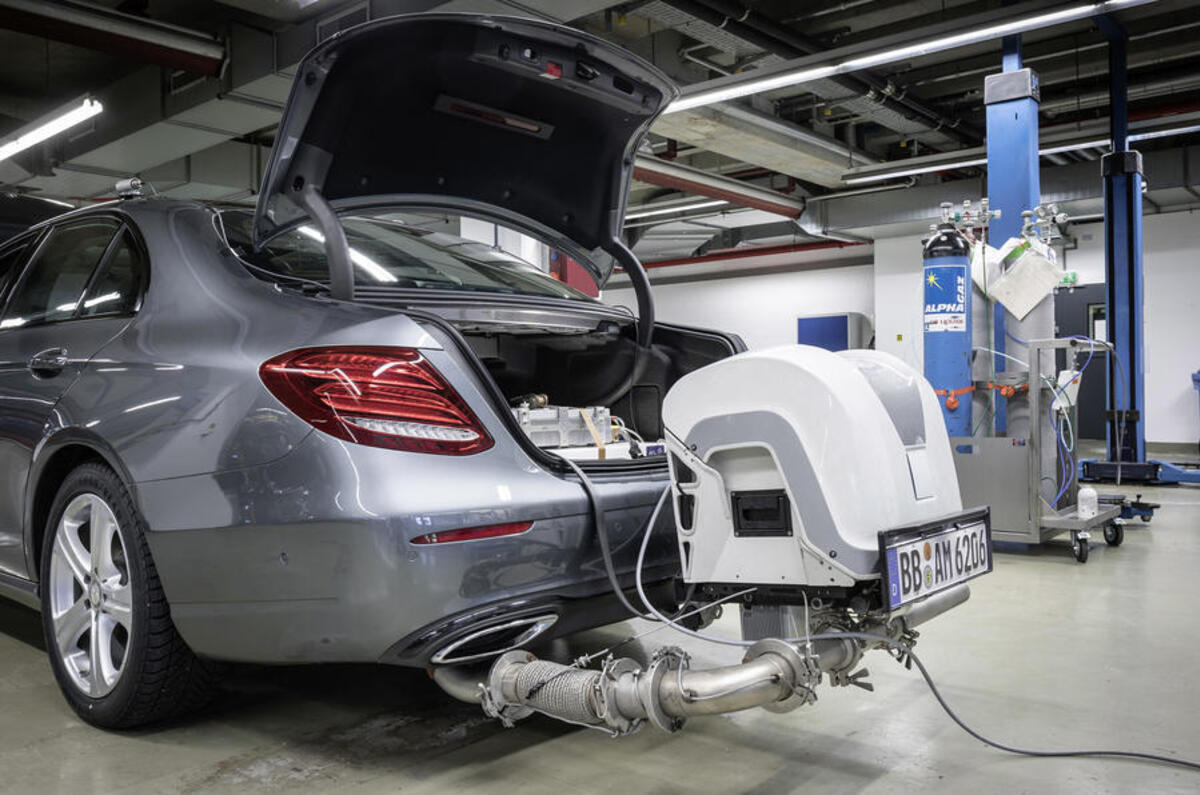The difference in CO2 emissions figures of cars tested on the new Worldwide Harmonised Light Vehicle Test Procedure (WLTP) and the outgoing New European Driving Cycle (NEDC) is wider than expected, according to industry analyst JATO.
The new WLTP test, which is designed to better simulate real-word conditions, comes into force from 1 September. After that date, new cars can only be sold if they have been tested under WLTP. In order to prepare a measurement tool called Co2mpas was developed by the EU Science Hub. The tool calculates the likely change in CO2 emissions to create a 'WLTP correlated' figure.
However, JATO says that the difference in CO2 emissions between cars tested so far and the correlated figures is greater than predicted. In luxury vehicles, the average difference is 18.3g/km higher. That could have major implications for the tax bands that cars are placed in. It could also prove significant because manufacturers will face increasingly stringent fleet average CO2 emissions targets in coming years.
In April, it was predicted that average CO2 figures would rise by around 8g/km. JATO now suggests that this could be as high as 9.6g/km, with the luxury car segment hardest hit. The least-affected segment is city cars, with an average increase of 6.6g/km expected. Volume segments including medium SUVs are hit harder, with a 16.7g/km average increase projected. Emissions of C-segment cars are expected to increase by an average of around 9.6g/km.
A JATO spokesman said: “The impact of re-homologation to WLTP testing could be even higher than previously thought. Following our analysis of a sample of the vehicles currently re-homologated, if this is extrapolated to the whole fleet, CO2 values could reach 130g/km in 2019, which is a significant 12g/km increase on the 118g/km currently seen in Europe and above the target set by the European Union.”
In addition to the discrepancy between predicted figures and the actual WLTP-measured emissions of cars, JATO expressed concern that only around 20% of cars have been re-homologated at present, raising concerns that by the time the switchover to WLTP is enforced, manufacturers may not be prepared.
The spokesman said: “The publication of re-homologated models/versions is not progressing as quickly as expected. It has taken 11 months for 20% of existing models/versions in the market to be re-homologated and published, meaning the industry could face a backlog of vehicles that cannot be registered if it isn’t completed by 31 August.”
This news comes soon after major European car makers protested ever more stringent EU legislation on car emissions, with a fleet average of 95g/km for each car maker coming into force in 2021, as well as a 30% reduction on top of this - or a fleet average of 66g/km - scheduled to come into force by 2030.
This, combined with the backlash against diesel, which is already contributing to a rise in the average CO2 emissions of cars registered in the UK as more consumers choose petrol-engined cars instead, could push manufacturers into hot water with the EU, which will fine car makers €95 (around £85) per gram over the target per vehicle sold.
“This could amount to a huge financial penalty for the European car industry which registered more than 16 million vehicles in 2017,” said the JATO spokesman.
Read more:
CO2 reduction targets 'overly aggressive', says European car industry
Analysis: How will car makers meet new CO2 laws?
Analysis: Are car makers ready for WLTP?
New WLTP emissions test could force heavy discounts on unsold cars
New WLTP emissions test: when it's in force and how it could affect your car




Join the debate
Add your comment
Misleading
"CO2 output ratings could exceed predictions when all cars have gone through new tests" not sure how a new test means more CO2, it just means you'll be able to more accuratley measure what's produced.
As to "This could amount to a huge financial penalty for the European car industry which registered more than 16 million vehicles in 2017,” said the JATO spokesman or to put it another way 'a huge penalty for our clients'.
Bring on the cavalry
Better change the global warming estimates then
Especially now everybodys been told to buy petrol engined cars